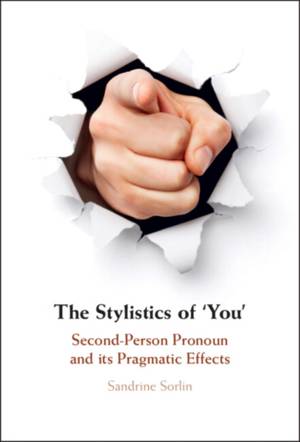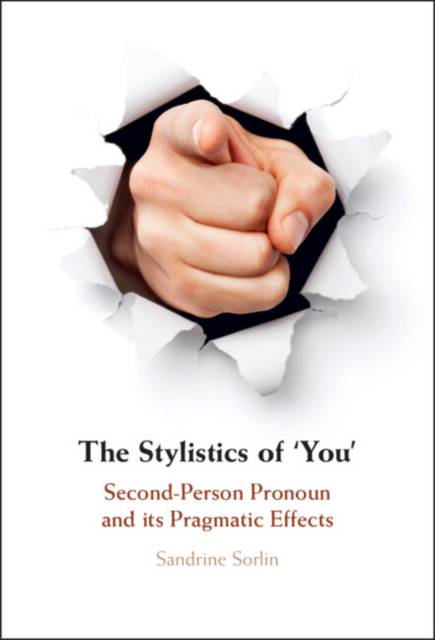
Door een staking bij bpost kan je online bestelling op dit moment iets langer onderweg zijn dan voorzien. Dringend iets nodig? Onze winkels ontvangen jou met open armen!
- Afhalen na 1 uur in een winkel met voorraad
- Gratis thuislevering in België vanaf € 30
- Ruim aanbod met 7 miljoen producten
Door een staking bij bpost kan je online bestelling op dit moment iets langer onderweg zijn dan voorzien. Dringend iets nodig? Onze winkels ontvangen jou met open armen!
- Afhalen na 1 uur in een winkel met voorraad
- Gratis thuislevering in België vanaf € 30
- Ruim aanbod met 7 miljoen producten
Zoeken
The Stylistics of 'You'
Second-Person Pronoun and its Pragmatic Effects
Sandrine Sorlin
Hardcover | Engels
€ 187,45
+ 374 punten
Omschrijving
This book takes 'you', the reader, on board an interdisciplinary journey across genre, time and medium with the second-person pronoun. It offers a model of the various pragmatic functions and effects of 'you' according to different variables and linguistic parameters, cutting across a wide range of genres (ads, political slogans, tweets, news presentation, literary genres etc.), and bringing together print and digital texts under the same theoretical banner. Drawing on recent research into intersubjectivity in neuropsychology and socio-cognition, it delves into the relational and ethical processing at work in the reading of a second-person pronoun narrative. When 'you' takes on its more traditional deictic function of address, the author-reader channel can be opened in different ways, which is explored in examples taken from Fielding, Brontë, Orwell, Kincaid, Grimsley, Royle, Adichie, Bartlett, Auster, and even Spacey's 'creepy' 2018 YouTube video, ultimately foregrounding continuities and contrasts in the positioning of the audience.
Specificaties
Betrokkenen
- Auteur(s):
- Uitgeverij:
Inhoud
- Aantal bladzijden:
- 280
- Taal:
- Engels
Eigenschappen
- Productcode (EAN):
- 9781108833028
- Verschijningsdatum:
- 13/01/2022
- Uitvoering:
- Hardcover
- Formaat:
- Genaaid
- Afmetingen:
- 152 mm x 229 mm
- Gewicht:
- 562 g

Alleen bij Standaard Boekhandel
+ 374 punten op je klantenkaart van Standaard Boekhandel
Beoordelingen
We publiceren alleen reviews die voldoen aan de voorwaarden voor reviews. Bekijk onze voorwaarden voor reviews.











